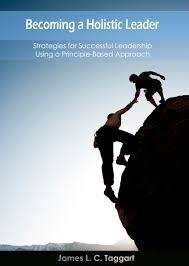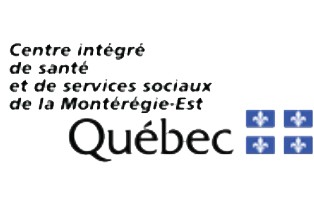Systems Thinking: Can You See the Big Picture?

Systems thinking deals with seeing wholes, or what some would say the big picture. It’s a discipline that enables us to see interrelationships and patterns of change, as opposed to snapshots of situations. It helps us to determine cause and effect, an important point because it’s never influenced in just one direction.
An important element of systems thinking is that of feedback and the role it plays in cause and effect. There are two types of feedback processes: reinforcing and balancing. An example of reinforcing feedback is a manager who does not fully appreciate the impact her expectations have on an employee’s performance. If she believes that the employee has potential, she’ll give him extra attention. In contrast, if she believes that an employee will be a poor performer, he’ll receive less attention.
This type of behaviour by a manager produces a self-fulfilling prophecy. In the first example, the employee will grow and develop, while in the second he’ll languish. In the latter example, a downward spiral can actually begin, one in which the interaction between the manager and the employee deteriorates, the consequence of mutual diminishing expectations.
The second type of feedback is balancing. These processes abound in organizations and are difficult to address. For example, we’re all familiar with the heroes who work long hours. They often complain about having to work on weekends. And it’s often these people who advance in the organization because working long hours is considered a virtue and an informal requirement to advancement.
Some organizations have attempted to eliminate this practice using formal communication. However, what they have found is that despite the official line from the CEO and other senior managers, the informal rule is that working long hours is still valued. Staff see management doing it, so it must be right.

These norms, in fact, are embedded in the power relationships in the organization. The challenge facing managers is to be able to identify the source of the resistance and to focus on these norms and power relationships. Pushing harder against the resistance is futile because it only strengthens it further.
In a true learning organization, managers come to understand the need to see the whole and the interrelationships that make an organization what it is. They are then functioning as systems thinkers. Senge sees systems thinking as an art, in which the individual is able to see through complex issues to the underlying forces. Mastering systems thinking means “…seeing patterns where others only see events and forces to react to. Seeing the forest as well as the trees is a fundamental problem that plagues all firms.”
Senge speaks of what he calls The Primacy of the Whole. This refers to the concept that relationships are more fundamental than things, and that wholes are of a higher order than parts. Managers are conditioned to see their organizations as “… things rather than as patterns of interaction.” They look for solutions that will ‘fix’ problems, instead of searching out the underlying causes. The consequence is the “… endless spiral of superficial quick fixes, worsening difficulties in the long run and an ever-deepening sense of powerlessness.”
While organizations learn through their people, this does not guarantee that organizational learning will result. This takes us to Senge’s second discipline: Personal Mastery.
Over the next few days think about Systems Thinking. Have you been part of the quick fix? What was the result or effect? Is there a sense of powerlessness among your co-workers?
The ability to perceive or think differently is more important than the knowledge gained. (David Bohm)
Next post: Personal Mastery
____________________________________________________________________________________________________

Articles from Jim Taggart
View blog
My recent posts explored what it means to be a team, the five levels of teamwork, how to build perfo ...

Teamwork is talked about widely in organizations, but often with little understanding of what it mea ...

When we look back to the 20th Century and reflect on great leaders, whether leading nations, organiz ...
You may be interested in these jobs
-
Residential Territory Manager
Found in: Talent CA C2 - 2 days ago
ECCO Supply™ Calgary, Canada Full timeWe are currently seeking a talented Residential Territory Manager to join our team in Edmonton. In this role, you will be responsible for supporting sales growth and profit with our existing customer base, while implementing strategies for diversification within the Residential N ...
-
Ingé DevOps Senior
Found in: Talent CA C2 - 4 days ago
Vention Montreal, Canada Temps pleinDescription du poste · En tant qu'ingé DevOps senior chez Vention, vous serez en charge d'établir et de promouvoir la pratique DevOps en vue d'augmenter la productivité des développeurs et la fiabilité opérationnelle grâce à des services automatisés et structurés pour le code/la ...
-

Physiothérapeute remplacement CLSC Simonne Monet Chartrand
Found in: Jobillico Premium CA C2 - 1 week ago
CISSS de la Montérégie-Est Longueuil, Canada TEMPORARYÉtablissement : CISSS de la Montérégie-Est Titre d'emploi : Physiothérapeute remplacement CLSC Simonne Monet Chartrand Langues maîtrisées (oral et écrit) : Motif du besoin (à titre indicatif) : Poste vacant Statut de l'emploi : Permanent- Temps complet Nombre d ...


Comments